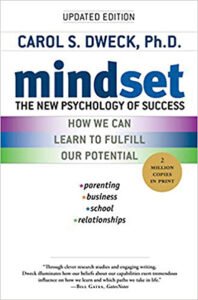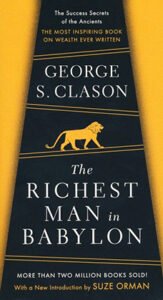
5 Ways To Self-Educate And Accumulate Wealth
1. Invest in Continuous Self-Education
One effective way to achieve continuous self-education is by cultivating a habit of daily reading. Set aside dedicated time each day to read books, articles, or online resources related to your areas of interest, whether it's personal finance, business, technology, or any other field. This consistent reading habit not only broadens your knowledge base but also allows you to stay informed about industry trends, new ideas, and different perspectives. Consider it an investment in your personal and professional growth, helping you stay relevant and informed in an ever-changing world.
In the pursuit of personal and professional growth, investing in continuous self-education stands out as a paramount strategy. One particularly effective avenue for achieving this is by fostering a daily reading habit. By allocating dedicated time each day to delve into books, articles, or online resources aligned with your interests, whether they pertain to personal finance, business, technology, or any other field, you embark on a journey of perpetual learning.
This commitment to regular reading not only expands the breadth of your knowledge but also serves as a means to stay attuned to industry trends, emerging ideas, and diverse perspectives. It's akin to making an investment - an investment in your intellectual capital that pays dividends throughout your life. As the world undergoes continuous transformation, staying informed becomes imperative for navigating its complexities.
Consider this daily reading ritual as a conscious and purposeful step towards self-improvement. It not only keeps you abreast of the latest developments but also nurtures critical thinking and a deeper understanding of your chosen subjects. In a world where change is constant, this habit becomes a dynamic tool, ensuring you remain relevant and adaptable in the face of evolving challenges. In essence, the commitment to continuous self-education through daily reading becomes an indispensable cornerstone for a thriving and ever-evolving personal and professional journey
2. Explore Passive Income Streams
Exploring passive income streams is a strategic and empowering approach to building wealth, offering an avenue for financial growth with reduced active involvement. By delving into opportunities like investing in dividend-paying stocks, venturing into real estate, or establishing an online business, individuals can cultivate streams of income that continue to flow with minimal ongoing effort.
Investing in dividend-paying stocks represents a classic method of passive income generation. As shareholders receive regular dividend payments, they benefit from a steady income stream without the day-to-day engagement required in active trading. Real estate, another tangible avenue, allows individuals to earn rental income or enjoy property appreciation over time, turning the investment into a passive source of wealth.
In the digital age, creating an online business has become a compelling option for generating passive income. Whether through affiliate marketing, e-commerce, or content creation, establishing an online presence can yield ongoing revenue without the need for constant hands-on management.
Passive income, while not entirely hands-free, offers the freedom to diversify income sources and allocate time strategically. This approach aligns with the idea of making money work for you, allowing individuals to transcend the limitations of trading time for dollars. By exploring and nurturing passive income streams, individuals can progressively accumulate wealth, fostering financial independence and flexibility for the future. It's a journey towards financial resilience, where the fruits of initial efforts continue to flourish, providing a foundation for sustained financial well-being.
3. Invest In Financial Literacy
Embarking on the path of financial success begins with a crucial step - investing in financial literacy. Allocating time and effort to educate oneself about personal finance, investing, and wealth-building strategies lays the groundwork for sound financial decision-making. A proactive approach to acquiring this knowledge involves delving into diverse resources such as books, workshops, and reputable financial websites.
Reading books authored by financial experts is a fundamental aspect of building financial literacy. From classics like "The Richest Man in Babylon" to contemporary bestsellers like "Rich Dad Poor Dad", these resources provide invaluable insights into managing money, making informed investments, and cultivating a wealth mindset. The wisdom distilled in these pages becomes a compass guiding individuals through the intricacies of financial planning.
Supplementing book knowledge with hands-on experiences is facilitated through workshops. Attending financial workshops provides practical insights, often delivered by experts in the field, helping individuals apply theoretical concepts to real-world scenarios. The interactive nature of workshops fosters a deeper understanding of financial principles and encourages the development of personalized strategies.
In the digital age, following reputable financial websites ensures access to up-to-date information and expert analyses. Websites from established financial institutions, investment platforms, and respected financial gurus offer a continuous flow of insights, keeping individuals informed about market trends, economic developments, and innovative wealth-building strategies.
In essence, investing in financial literacy is an investment in oneself. It empowers individuals to navigate the complex landscape of personal finance with confidence and competence. By actively seeking knowledge through literature, workshops, and digital resources, one not only builds a robust foundation but also cultivates a lifelong skill set that is essential for achieving and sustaining financial well-being.
4. Create And Stick To A Budget
Crafting and adhering to a budget stands as a fundamental pillar for financial stability and success. The process begins with the development of a realistic budget, a comprehensive roadmap that delineates income, expenses, and savings goals. This financial blueprint serves as a guiding framework, empowering individuals to make informed decisions about their money.
In creating a budget, one gains a clear understanding of their financial landscape. By meticulously outlining income sources and categorizing expenses, individuals can identify areas for optimization and set realistic savings targets. This proactive approach fosters financial mindfulness, transforming financial goals from abstract aspirations into tangible, achievable milestones.
The true efficacy of a budget lies in its consistent implementation. Regularly tracking spending habits is paramount, as it ensures alignment with the predetermined financial plan. This ongoing assessment allows individuals to gauge their financial health, make necessary adjustments, and stay accountable to their objectives.
Budgeting, at its core, is a tool for resource allocation and prioritization. It enables individuals to allocate resources efficiently, directing funds towards essential needs and meaningful goals. By establishing clear priorities and curbing unnecessary expenses, budgeting paves the way for disciplined financial management.
Moreover, the emphasis on savings within a budget cultivates a habit of setting aside funds for future endeavors, emergencies, and long-term financial security. Ultimately, creating and adhering to a budget is not just a financial exercise; it's a transformative practice that instills financial discipline, fosters informed decision-making, and propels individuals towards lasting financial well-being.
5. Promote Networking and Seek Mentorship
In the pursuit of financial success, fostering connections through networking and seeking mentorship emerges as a powerful strategy. Actively engaging with accomplished individuals in your chosen field offers a wealth of opportunities for learning and growth. Attending networking events serves as a dynamic platform to establish meaningful connections, exchange ideas, and stay abreast of industry trends.
Seeking mentorship from those who have traversed the path to financial success is a proactive step towards personal and professional development. Mentors provide invaluable insights, guidance, and a wealth of experience that can significantly accelerate your own journey. Learning from their triumphs and setbacks allows for a more informed and strategic approach to wealth-building.
Networking goes beyond casual interactions; it opens doors to possibilities that might otherwise remain undiscovered. Building a network of like-minded individuals fosters a supportive community where knowledge is shared, and collaborative opportunities arise. Exposure to different perspectives and strategies enriches one's understanding of the landscape, enabling better-informed decisions.
Moreover, the relationships formed through networking often extend beyond the exchange of business cards. They create a foundation for mentorship, where seasoned professionals can impart wisdom, provide constructive feedback, and serve as invaluable guides on the path to financial prosperity.
In essence, promoting networking and seeking mentorship is an investment in personal and professional growth. It is a deliberate step towards leveraging the collective wisdom of those who have achieved financial success, creating a network that not only accelerates your wealth-building journey but also enriches your overall experience within your chosen industry.
Recommended Reading:
Below are three books on the topic of this post, which I highly recommend for your reading. As an Amazon Associate I will earn from qualifying purchases you made from this Post.


